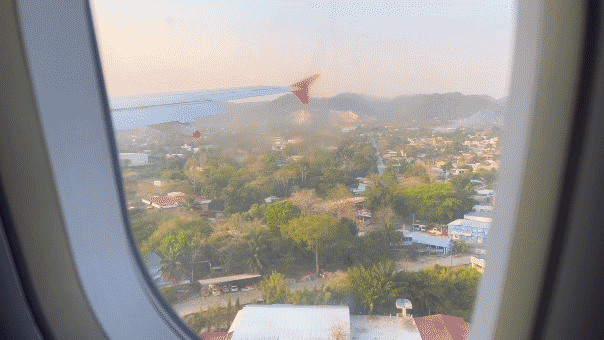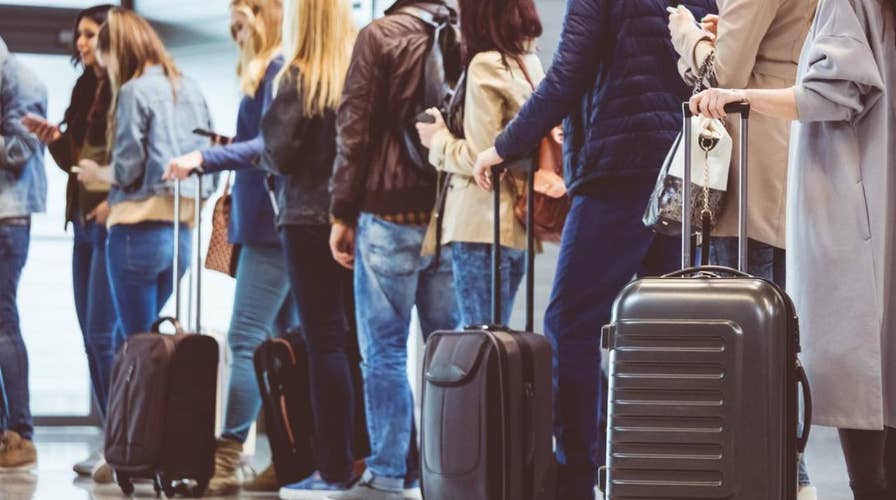Company uses technology to weigh passengers before flights
A company wants to weigh its passengers before flights to help planes use less fuel.
The issue of weighing passengers before flights can be dicey. While calculating the appropriate weight on an aircraft can be critical for flight safety, airlines forcing passengers to be weighed can come off as crass, insensitive, and outright body-shaming.
But one British startup wants to discreetly weigh passengers in order to help airlines save on fuel costs and keep passengers from feeling like they’re being shamed for their size.
According to Lonely Planet, Fuel Matrix, a startup founded by CEO Roy Fuscone, aims to use methods like pressurized pads at self-service bag drops or during full body scans to collect data on passenger's weight. Much like with facial recognition technology, the pads will confidentially send data to the airlines alone for the purposes of fuel economy.
Perhaps many passengers take for granted how much weight is on their flight, and how much fuel it takes for their plane to get from one place to another based on how light or heavy it is. But airlines take this measurement into account for every single flight.
Everything, from baggage to equipment to, yes, even passenger weight, can affect how much fuel a plane needs to carry to get from point A to point B. At the moment, airlines generally use an estimated weight based on passenger gender: 93kg (about 205 lbs.) for men and 75kg (about 165 lbs.) for women, according to The Independent. Once added up, this calculation informs airlines on how much fuel to carry.
Of course, since everyone is a different size and shape, this weight estimate is, in general, actually higher than the actual passenger weight on any given flight, reported The Independent. The result of this is that planes are carrying far more fuel than they need, and heavier planes are less efficient and less green.
More From Travel + Leisure
- Airlines Extend Flight Cancelations Into the Summer Due to Boeing 737 MAX 8 Grounding
- You Can Travel to a Galaxy Far, Far Away in United Airlines' New, 'Star Wars' Themed Plane
- What Happened When an American Airlines Flight Attendant Spilled a Tray of Drinks All Over the CEO
- Disney World’s New Gondola System Will Let You Fly Across the Parks
“It’s critical to know the actual weight an airline is carrying to ensure the correct fuel uplift,” Fuscone told Lonely Planet.
Nick Brasier, COO of Fuel Matrix, told the Independent that the company estimates most flights carry about one percent more fuel than they need and burn about 0.3 to 0.5 percent more fuel due to the extra fuel weight.
In addition to adding less fuel to flights, Fuel Matrix posits that airlines can even seat passengers based on weight so that it is evenly distributed throughout the flight — though this may be a more controversial practice than the company may realize. Separating parties of passengers may not go over well in reality.
Airlines have attempted to weigh passengers in the past with mixed results. Finnair offered optional weighing at the airline’s gates of the Helsinki Airport in order to collect data on average passenger weight. Of course, since this practice was voluntary, only certain passengers would probably opt in, potentially skewing any results.
Samoa Air went even further to not only weigh passengers, but to charge them more based on how much they weighed. And Russian airline Aeroflot urged flight attendants to lose weight, or risk facing certain job penalties.
Luckily, Fuel Matrix does not recommend charging more for airfare based on weight. The company is hoping to introduce these discreet pressure pads to certain U.K. airports, according to Lonely Planet, but so far they have not been implemented.









































